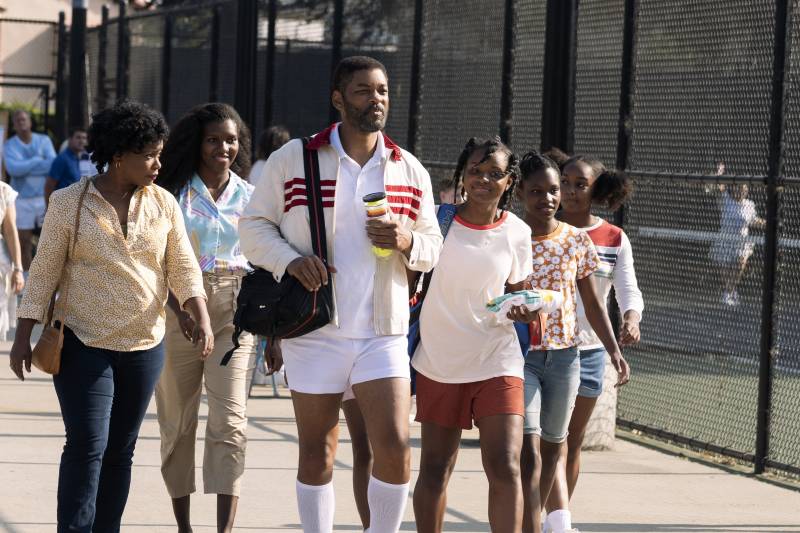While some of the critique of the film may focus on the decision to center Richard Williams in a film about his daughters, I was mostly moved by the ways in which young Venus and Serena (played beautifully by Saniyya Sidney and Demi Singleton) were loved and protected by their mother and father as they navigated the competitive, white, affluent world of tennis. Their confidence and light as Black girls were preserved throughout. Richard demanded they remain grounded and humble, rebuffing any bragging. They were also allowed to revel in joy and fun, and choose the sport instead of being forced to play it.
King Richard is full of warmth and intimacy. Crowded shots of the sisters in the van, traveling together as a unit, form this kind of visual chorus throughout the film. Profile shots of Richard driving the family van give this sense of a road movie, as much of the narrative happens in the family car. The tennis scenes capture the power and intensity that have made Venus and Serena exemplary in the sport.
So many times as Black girls and women, we walk through life without a shield, and become the targets of other people’s stigmas, racism, aggression and pain. To protect the light, hope and confidence in young girls is beautiful, and it happens in King Richard.
When Venus walks onto the court for her biggest match in Oakland, she walks proudly, beads swinging from side to side. She believes in herself. This is the love and care that Richard and Oracene instill in their daughters, and it is so beautifully on display in this film. This is the light that we continue to root for in these women. It is a light that cannot be crushed. I loved this film for that. This is why I became emotional.
The film made me think of my own parents. Growing up in the Bay, my mother encouraged me to read novels, write poetry and go to dance class. She stayed up all night to help my cousin sew outfits for an African dance performance at our school’s talent show. She always tried to protect my siblings and I. In one scene, Richard shields Venus from an interviewer’s invasive questions about her confidence and skill. He understands how fragile his daughter’s mind is at that age and won’t allow anyone to make her doubt herself.



